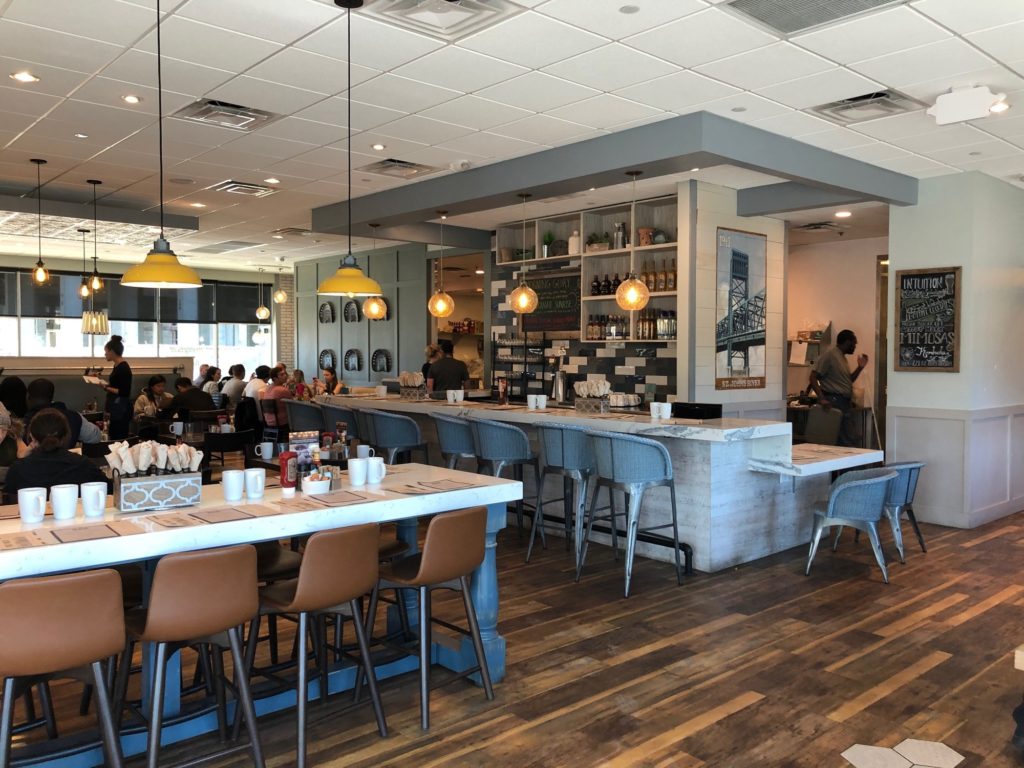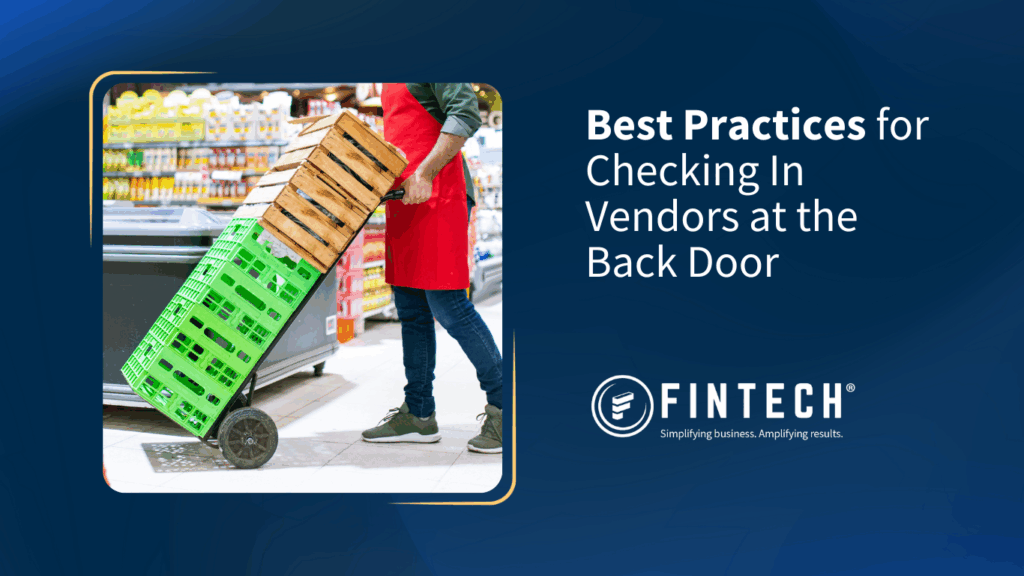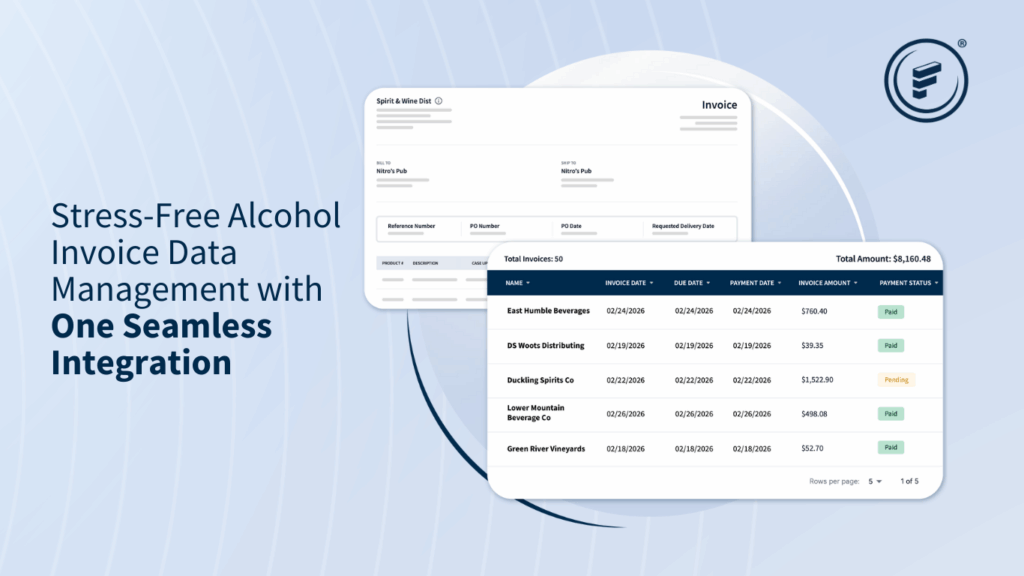Read how First Watch has been able to pivot their operational strategies and reopen their locations successfully under new restaurant regulations.
This blog is part one in a five-part series around how Restaurateurs are finding their new normal and operating under COVID regulations.
Since 1983, First Watch, The Daytime Café, has been serving the U.S. with the freshest ingredients and an unwavering dedication to their You First™ service philosophy. Today, they’re continuously expanding their offerings, even bringing alcohol into more than 75 locations across the country.
While COVID-19 certainly brought about challenges for the chain, they quickly adapted without ever losing sight of their commitment to their employees and guests. By pivoting operational strategies and implementing new safety protocols, First Watch has been able to reopen their locations and get back to the business they’re known for. We were joined by Shane Schaibly, Vice President of Culinary Strategy for First Watch, during our panel discussion about operating best practices to hear all the ways First Watch has moved forward and found success with the new regulations. Read his answers to our questions below.
Overall, how has business changed for you over the last few months?
Shane: We have offered take-out or to-go food for a while now, but it wasn’t a significant part of our business. Once COVID hit, we closed our dining rooms, and we moved to take-out only for about a month. While this was successful, we decided to ultimately close down and “go dark” for about six weeks after Easter Sunday to really refocus our energy and build a solid reopening plan. Thankfully, this time gave us an opportunity to do things like establish ourselves with third-party delivery providers and organize our menu in a way that promotes efficiencies and delivers the products our guests know and love. It also gave us the opportunity to see where the strictest safety and regulatory guidelines would be, and then elevate the rest of our locations to that standard. In a lot of ways, we wanted to make sure we were doing more than we needed to from a safety standpoint.
How are you communicating reopening news and safety protocols to your guests?
Shane: We’ve leaned heavily on our social media outlets. They’re the easiest and most cost-efficient way to spread the word, and they’re the most heavily utilized resources by our customer demographic. We’re also using our Sun Eclub internal email list to let people know their local restaurant has reopened. Our goal has been to just keep content in front of people so that they don’t forget about us, then as soon as we’re able to, we’re pivoting the message to welcome them back for dine-in service.
In each location, we have signage throughout the restaurant, informing people about safety procedures and physical distancing guidelines. To us, it’s all about perception. The more our customers see us actually taking action – scrubbing tables, wiping down surfaces, wearing masks and gloves – the more likely they are to feel safe. They can see we’re not just talking about it; we’re doing it.
How are you blocking off tables or accommodating for capacity restrictions?
Shane: When we were ready to reopen, we didn’t want to do anything that wasn’t consistent with our brand or translatable across locations. We’ve seen a lot of people get creative with caution tape, signs, or even stuffed animals or mannequins, but that doesn’t blend with the First Watch experience. Where we could, we took steps to reformat the dining rooms and either repurpose indoor tables for patio seating or put them in storage. Again, it goes back to the guest’s perception, and we want our customers to be comfortable and know that we’re doing what we can to maintain social distancing.
Have you made any menu changes in response to these transitions?
Shane: Early on in that period between St Patrick’s Day and Easter, we had an inkling that things were going to change moving forward. So, we transitioned to very limited menus, which were about half of our traditional menu. We included items that could be prepared and presented quickly and safely. But, when we reopened for dine-in service, we went back to our full menu. It was a strategic decision, and we felt it was essential to offer our guests the First Watch experience they expect when they were ready to come back to our restaurants. Our hope is that it could be the first step back to some kind of normal for people.
We have had to make a few small tweaks to recipes to ensure that our prep and cook lines are running as efficiently as possible and to account for any changes in the supply chain, but overall this was the best plan for us. Ultimately, these decisions have helped us quickly get back to the sales volumes we’re experiencing now!
We’re also physically changing the way we present menu information by offering single-use paper menus and QR codes linked to our online menu on every table. Our table-top marketing collateral has shifted from advertising our new juice or menu item to showing the customer how to access a touch-free menu.
Are you including alcohol in your to-go offerings?
Shane: We are offering to-go alcohol in two Florida restaurants because that’s where the laws are the most favorable and where we have the highest concentration of restaurants that were already serving alcohol. We’re only serving three of our prebatched drinks, the Bloody Mary, Mimosa, and Pomegranate Sunrise. While to-go alcohol hasn’t been a major driver for breakfast, we’re definitely excited to see our dinner counterparts find success with the new allowance.
It’s more important than ever to stay on top of the rapidly changing rules and regulations. Has that been a challenge for you, and how have you tracked the changes that impact your business?
Shane: Keeping up with the changing regulations has certainly been challenging, but it’s been a great combined effort from our Quality Assurance and Food Safety team and our Legal team. They have been super diligent about tracking changes and communicating them to the rest of the organization. We get regular updates about food safety procedures that are broken down by state, showing exactly what changed in each state and providing links to all the different state laws. They’re also tracking when the changes will take place and for how long they’ll be in effect.
I really sympathize with mom and pops that maybe don’t have the resources that we have. At the end of the day, the rules change so quickly that it’s even difficult for a chain of our size to keep up, but we have to do what we can. We certainly hope that maybe there’s something that those types of businesses can learn from our experience, and we can see a real revival for the industry overall.
What are you doing to get buy-in from your employees regarding PPE, social distancing procedures, and new safety practices?
Shane: Well, we’re in 28 states and the rules obviously differ even down to the county level, so it’s been a bit of a challenge. But all our employees who have come back to work are 100% on board with everything we have to do. I think that a lot of it has to do with our You First mission, because when employees did come back, our management teams took the time to sit down with them, talk to them, and make sure they’re doing well on a personal level. With that kind of transparency, we got a really great response. No matter what we’ve asked, from the masks to temperature checks, or sanitization, they’ve stepped up.
At First Watch, we’ve always had an outstanding Quality Assurance and Food Safety team, so none of the changes have been radically different from what we were doing before COVID. The hardest adjustment has been our requirement for kitchen staff to wear masks. The kitchen is hot – our egg griddles get up to about 700 degrees. So, we’re staying sympathetic by offering more or longer break times, moving people from the line to maybe prep where it’s a little cooler, and making sure they have plenty of water. Again, we really prioritize listening to our employees, so when they come to us with a suggestion on how we can operate better or more efficiently, we listen. We also leveled the playing field across our whole corporation, so everyone is following the same guidelines.
Have you made any changes to your payment processes because of COVID?
Shane: During those six weeks that we were dark, we really took a step back and, as a leadership team, looked into all the initiatives that we could accelerate while the restaurants were closed. We found that many of our IT programs would work well. So, now we have chip readers on all our POS and checkout systems! Customers don’t have to ever exchange their payment with servers, and each machine is wiped down after each use. At first, it was a bit of a learning curve, but it’s really made things safer and more comfortable for everyone.
Lastly, what would be your best advice for anyone looking to navigate all these new regulations and be successful in moving forward?
Shane: Lean on and trust your people and keep putting them first. We have a steadfast belief that our people are our most important and valuable resource, and that’s what built our You First mantra. We need to listen to our employees because they’re the ones actually doing the job and living out the new procedures day in and day out, so listening can go a long way. We’ve also made it a point to proactively reach out to our teams to see if they have suggestions or concerns, that way we can make changes that will actually help them. When you put your employees first, they will turn around and put your guests first.
Interested in hearing more about how First Watch and other top restaurant brands are handling new regulations and finding success with reopening? Watch our full panel webinar, Restaurateurs Share Best Practices for Operating Under COVID Regulations, on-demand.






